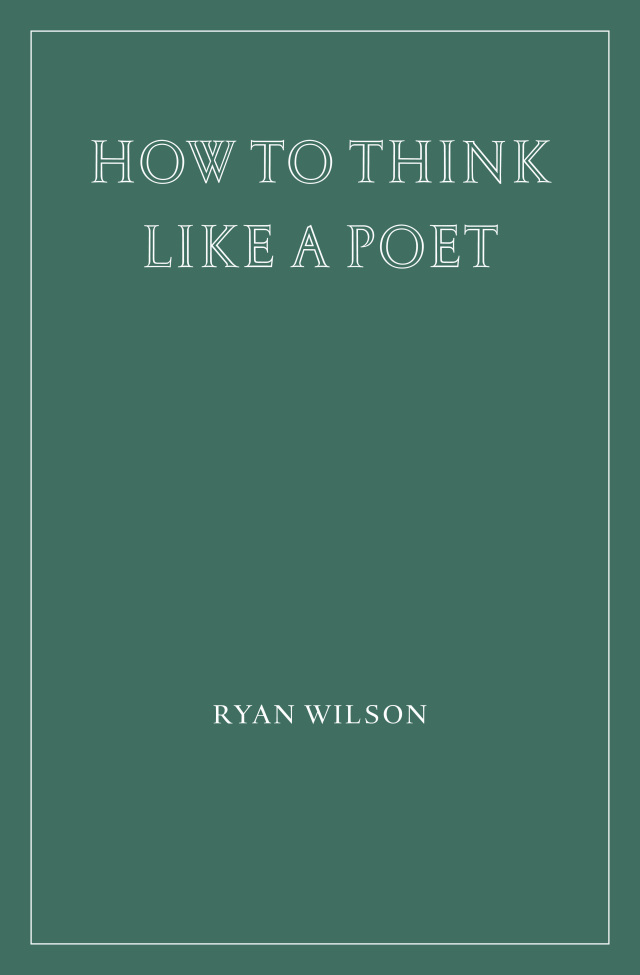- Our Books
- >
- Monographs
- >
- How to Think Like a Poet, by Ryan Wilson
How to Think Like a Poet, by Ryan Wilson
How do poems mean, and how should they be read? How do symbols work? How does meter relate to poetry? Why do young artists’ choices differ from those of older artists? At once scholarly and conversational, How to Think Like a Poet answers all these questions and more. Building upon the ancient Greek concept of xenia, or ‘hospitality,’ Ryan Wilson helps us understand how poets ‘articulate the particular’ in the service of community. This essay is for anyone interested in reading or writing poetry, and it reminds us that ‘To think like a poet is never to be bored again.’
PRAISE for How to Think Like a Poet
With an uncommon clarity and a uniquely graceful erudition, Ryan Wilson challenges us to think faithfully about our art and artfully about our faith. In so doing, he urges each of us to be more fully human, more fully the incarnate poem our maker intends. Candid, eloquent, insightful, and, above all, passionately hospitable, How to Think Like a Poet invites us into poetic relationships, exchanges in which our minds creatively host the stranger-world while simultaneously enjoying that world's lavish generosities. Ultimately, these pages offer nothing less than the radical welcome of the authentically Christian imagination. – George David Clark
“Reality is the host,” Ryan Wilson reminds us, “and our knowledge is the guest.” And “To think like a poet is...to seek those moments when the individual and fragmented takes its place in a greater pattern.” At once heartening and challenging, hortatory and inspiring, Wilson's homiletic essay is a gentle but powerful companion on any poet's path. – Rachel Hadas
Ryan Wilson understands that poetry and all great literature concerns what it means to be human. In How to Think Like a Poet he provides readers with insights into how to engage literature in ways that will enrich their capacities for experiencing literature and life in all its textures. This is an extraordinarily intelligent, insightful, and sensitive book, one in the tradition of Cleanth Brooks, Edward Hirsch, and other critics who know how and why poetry and literature matter. – Ernest Suarez


